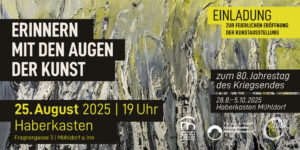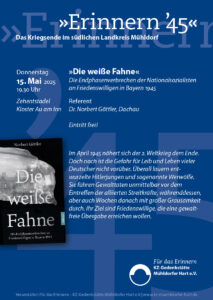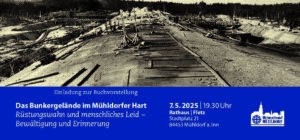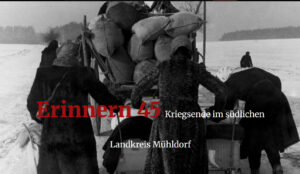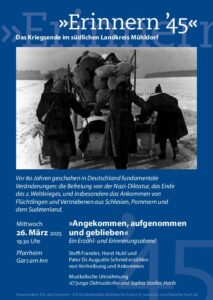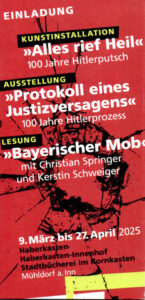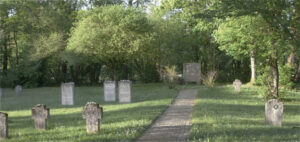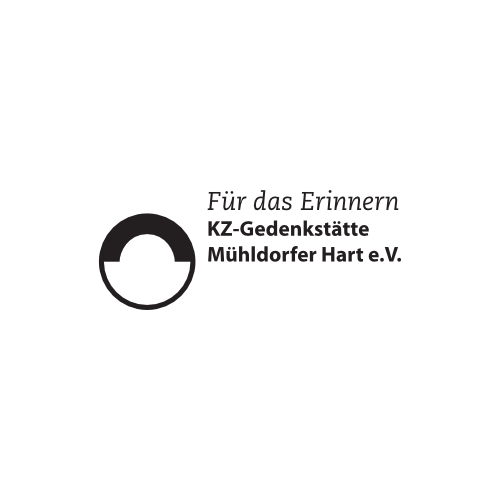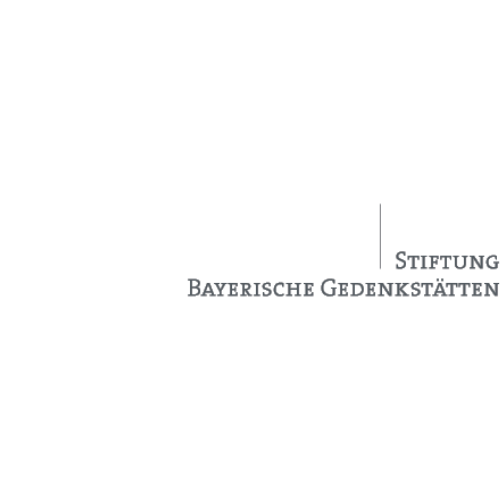Southern part of Mühldorf district, March – December 2025
Erinnern 45—The end of WWII in the southern part of Mühldorf district
With Erinnern 45, a series of lectures and exhibitions, a group of people interested in local history, revive a time that has been mostly forgotten. In 1945, for the inhabitants of the villages near Mühldorf nothing was as it used to be.
American occupying forces, disorientation, fear, hunger, encounters with strangers and foreigners characterize the new everyday life. Many men were still at war or in captivity, that’s why women had to take over men’s work.
Displaced persons from the Sudetenland, Silesia, East Prussia and the Baltic states arrived in the villages: traumatized, without possessions, without a place to live. Tensions arose in cramped conditions, but also close relationships and friendships with the “refugees”.
At the same time, former concentration camp prisoners, forced laborers, orphaned children, bombed-out city dwellers and evacuees lived in the district. Insecure people, some of them wounded in body and soul, had to somehow find a new beginning.
Effects on today
Traumatic events leave wounds in the human soul, this is also true with village communities. Concealing them does not heal, not even after generations. They shape our ancestors, our families and our community to this day.
The initiators of Erinnern 45 intend to offer a close look at the local history of those days. Join in discussions with contemporary witnesses, listen to historical lectures, be part of hiking tours in search of traces, visit concerts or a Kulturmobil exhibition.
Dates (a selection)
October 7, 2025, 7 p.m., Gymnasium Gars
Swing, Gars and Graslitz horns. Music before and after 1945
Location: Gymnasium Gars
June 27, 3 p.m., Jettenbach
Injured—Lost—Displaced. The end of the war in Jettenbach
Meet Contemporary witnesses and talk under the lime tree in Jettenbach castle courtyard
Music: Fabian Beham, harmonica
15 May 2025, 7.30 p.m., Kloster Au
Lecture “Die weiße Fahne” by Dr. Norbert Göttler
Learn about final crimes in Bavaria in 1945 committed by the Nazis against people longing for peace.
Location: Zehentstadl Kloster Au
6 May 2025, 6 p.m., Mittergars
Hiking tour: In the footsteps of 1945 in and around Mittergars
Meeting point: Mittergars village square
At 8 p.m., a discussion with contemporary witnesses in the village hall
29 April and 6 May 2025, Gymnasium Gars
Classes 9a and 9b talk to the expellee Father Dr. Augustin Schmid
Find more dates on the “Erinnern 45” website (in German).

